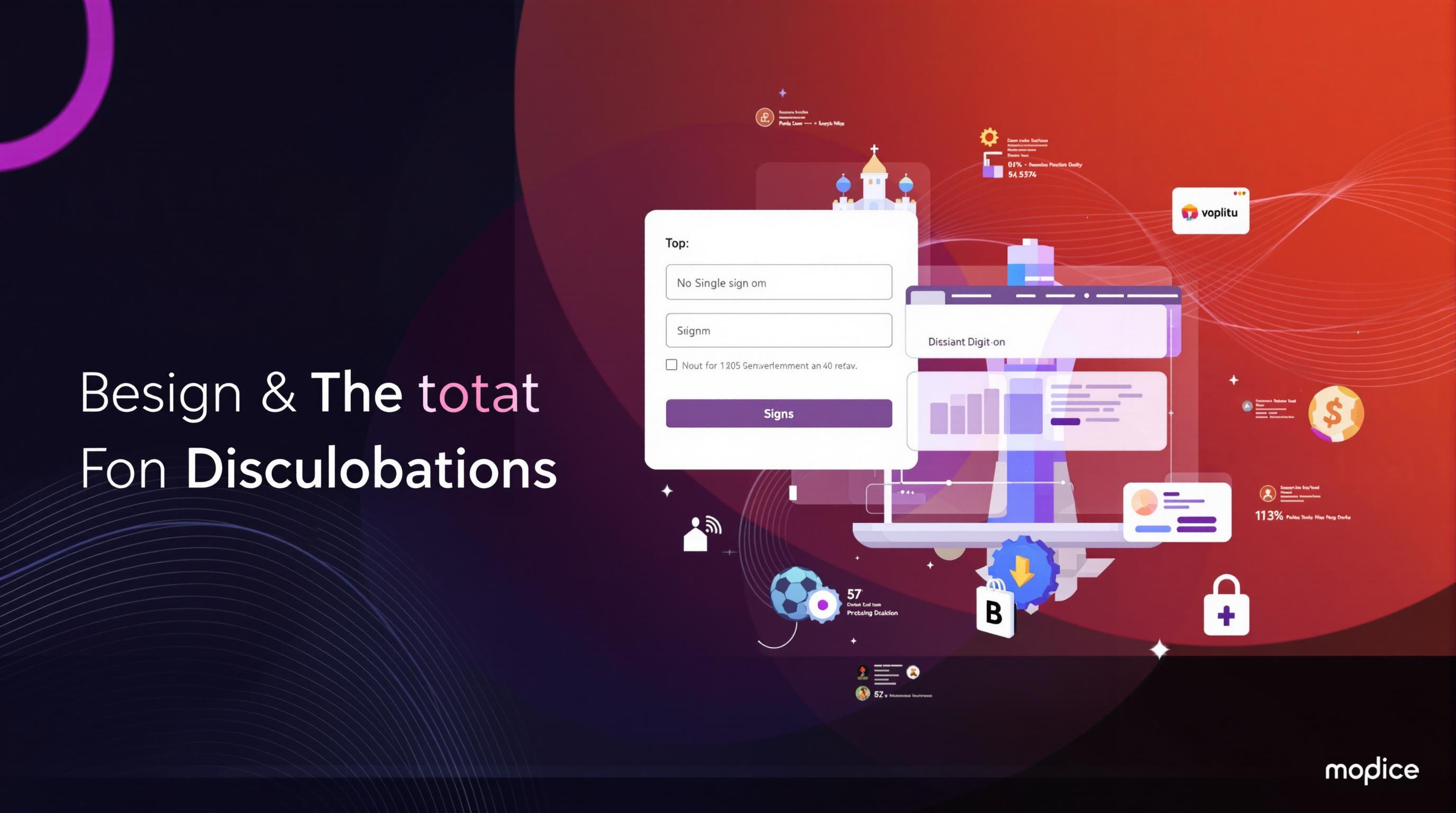Related Articles
- Top 8 Trailblazing Low-Code Platforms from the Past Five Years Revolutionizing App Development Efficiency
- Top 6 SaaS UX Innovations Since 2019 That Outsmart Legacy Giants in User Workflow Mastery
- How Forgotten Protocols in Legacy Systems Challenge Modern Digital Authentication Practices
- Unveiling the Role of Corporate Storytelling in Shaping Employee Adherence to Ethics and Compliance Standards
- 5 Next-Gen Digital Collaboration Apps from 2019-2024 That Transform How Teams Connect and Create
- The Unexpected Environmental Impact of Subscription Models: How Recurring Payments Influence Sustainable Consumer Choices
5 Intriguing Ways Single Sign-On Tech Can Transform AI-Powered Customer Support Systems in 2024
5 Intriguing Ways Single Sign-On Tech Can Transform AI-Powered Customer Support Systems in 2024
5 Intriguing Ways Single Sign-On Tech Can Transform AI-Powered Customer Support Systems in 2024
Introduction to Single Sign-On and AI in Customer Support
In 2024, the convergence of Single Sign-On (SSO) technology and AI-powered customer support systems is poised to revolutionize how businesses interact with customers. SSO allows users to access multiple applications with a single set of login credentials, minimizing the hassle of managing numerous passwords. This streamlined access improves user experience significantly.
Simultaneously, AI-driven customer support systems enhance capabilities by providing intelligent, automated responses and personalized interactions at scale. When integrated with SSO, these systems leverage seamless authentication to access comprehensive customer data securely and efficiently, enabling a more connected support environment.
Understanding how SSO can augment AI in customer support can help organizations harness this synergy to improve operational efficiency, security, and customer satisfaction. This article explores five intriguing ways this transformative technology pairing is impacting customer service in 2024.
1. Unified Customer Profiles for Personalized Support
SSO enables AI systems to access a unified digital identity across various platforms, consolidating customer data from different touchpoints. This holistic view allows AI to generate highly personalized responses based on browsing history, past interactions, and preferences, enriching the support experience.
Such unified profiles eliminate fragmented data silos, making customer info instantly available to AI systems. Consequently, customers receive faster, context-specific support without repeating information, leading to increased satisfaction and loyalty.
A study by Gartner in early 2024 highlights that companies utilizing unified user profiles via SSO saw a 30% increase in customer retention due to personalized AI support services (Gartner, 2024).
2. Enhanced Security through Streamlined Authentication
One of the most pressing concerns in customer support technology is maintaining security while ensuring ease of access. SSO reduces the number of passwords customers must remember, lowering password fatigue and the risk of insecure password practices.
By integrating SSO, AI-powered systems authenticate users securely with reduced friction. Additionally, multi-factor authentication (MFA) can be seamlessly incorporated, combining security with user convenience. This is critical as AI systems access sensitive customer data during support interactions.
According to the Cybersecurity Insiders 2024 report, organizations embedding SSO with AI support platforms experienced a 40% reduction in security breaches related to credential theft (Cybersecurity Insiders, 2024).
3. Streamlined Multi-Channel Support Access
Modern customers interact with brands across various channels—websites, mobile apps, chatbots, and social media. SSO facilitates a smooth transition between these platforms without repeated logins, allowing AI systems to maintain context and continuity throughout the customer journey.
This seamless experience empowers AI to provide efficient, continuous support regardless of the channel. Customers enjoy frustration-free interactions, while AI maintains conversational context and history for rapid resolution of issues.
Forrester Research indicates that firms leveraging SSO for cross-channel AI support witnessed a 25% decrease in average handling time (AHT) in 2024, attributed to smoother customer authentication processes (Forrester, 2024).
4. Faster Onboarding and Reduced Support Load
Integrating SSO with AI-powered onboarding tools accelerates user registration and setup by allowing immediate access to services without creating new credentials. This faster onboarding improves customer experience and reduces the load on support agents.
AI virtual assistants utilize authenticated profiles from SSO systems to guide new users through product features and troubleshooting autonomously, deflecting common queries from human agents.
Research from McKinsey & Company in 2024 shows that AI-driven onboarding enhanced by SSO lowered support tickets by up to 20% during initial user adoption phases (McKinsey, 2024).
5. Real-Time Analytics and Proactive Issue Resolution
SSO permits AI support systems to collect real-time, accurate data across customer touchpoints, enabling sophisticated analytics and proactive problem detection. AI can identify usage anomalies or dissatisfaction signals early, prompting timely outreach.
This proactive approach helps prevent escalations and resolves issues before customers even raise them. It also allows personalization in anticipating customer needs, increasing brand trust and engagement.
According to a 2024 Deloitte study, companies using SSO-enabled AI support platforms saw a 15% improvement in customer satisfaction scores due to proactive service interventions (Deloitte, 2024).
6. Simplified Compliance and Privacy Management
Data privacy and regulatory compliance are paramount in customer support, especially when managing vast personal data through AI. SSO centralizes user authentication and consent management, easing compliance challenges.
With SSO, AI systems maintain transparent access logs and respect user privacy preferences seamlessly, ensuring adherence to regulations like GDPR and CCPA without compromising functionality.
The International Association of Privacy Professionals notes that integrating SSO with AI support systems reduces compliance overhead by up to 30% compared to decentralized authentication models (IAPP, 2024).
7. Improved Scalability and Maintenance Efficiency
As AI-powered support evolves, the integration of SSO allows IT teams to scale authentication processes effortlessly across new applications and services. Centralized access control reduces complexity in system maintenance.
This means quicker deployment of AI-driven features and faster updates without disrupting the customer’s seamless login experience. Organizations benefit from lowered operational costs and enhanced system reliability.
A report from IDC in 2024 highlights that businesses employing SSO with AI support platforms reduced IT administrative hours by 35% during scaling phases (IDC, 2024).
8. Enabling Omni-personalized Experiences
Beyond basic personalization, SSO paired with AI enables omni-personalized customer journeys that adapt in real-time based on authenticated behavior. This ensures consistent messaging and service quality across all interaction points.
AI can dynamically tailor offers, support scripts, and communication channels for each authenticated user, enhancing engagement and conversion rates effectively.
A 2024 study by Accenture reveals that companies adopting omni-personalization supported by SSO and AI witnessed a 20% increase in customer lifetime value (Accenture, 2024).
9. Facilitating Collaboration between Human Agents and AI
SSO allows AI systems to accurately identify customers, enabling smooth handoffs between virtual assistants and human agents during complex support scenarios. Shared authentication data ensures agent access to comprehensive customer history instantly.
This collaboration improves resolution times and customer experience by combining AI efficiency with human empathy and problem-solving skills.
According to Zendesk's 2024 customer experience report, support teams using SSO-integrated AI assistance reduced call escalations by 18%, improving overall service delivery (Zendesk, 2024).
10. Future Outlook: Continuous Innovation with SSO and AI Cooperation
As AI and SSO technologies advance, their integration will foster increasingly sophisticated, secure, and user-centric customer support ecosystems. Innovations like biometric SSO and AI-powered identity verification will redefine authentication processes.
Future customer support will be proactive, predictive, and personalized to an unprecedented degree, anchored by seamless and secure authentication protocols that SSO provides.
Organizations that invest in this synergy are better positioned to deliver exceptional customer experiences and maintain competitive advantage in 2024 and beyond.




